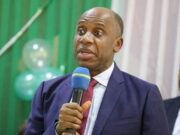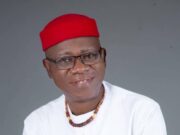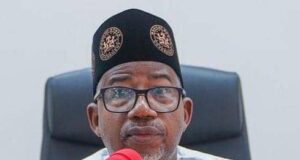As the 2027 general elections draw closer, opposition parties in Nigeria continue to grapple with internal divisions and shifting allegiances.
Amid this turbulence, the Social Democratic Party (SDP) has emerged as a new force, declaring its readiness to reshape the nation’s political future.
In a statement released by its National Publicity Secretary, Ambassador Rufus Aiyenigba, the SDP announced that its National Working Committee (NWC) had mapped out strategies to strengthen the party’s grassroots and diaspora presence.
The party said these measures would enable it to compete decisively in the 2027 elections.
Despite ongoing talks of political realignment, the SDP insists it is not entering any merger.
“We’re running on a clean slate,” the statement emphasized, stressing that the party would remain ideologically distinct while maintaining an open-door policy for progressive-minded Nigerians—especially youths and professionals—committed to rebuilding the country.
However, tensions flared when New Nigeria Peoples Party (NNPP) chieftain Buba Galadima alleged that former Kaduna State governor Nasir el-Rufai—who recently defected to the SDP from the ruling All Progressives Congress (APC)—was merely acting as a placeholder for former Vice President Atiku Abubakar.
Speaking in an interview with AIT, Galadima questioned the political value el-Rufai could bring, noting his past electoral losses in Kaduna even while in power.
“El-Rufai lost ground in his own state when he was governor. Now, from outside government, he’s expected to deliver results? That’s not realistic,” Galadima said, dismissing the SDP’s momentum as “noisemaking.”
He also expressed surprise that Atiku would associate with el-Rufai, recalling the latter’s previous criticisms of the former vice president.
Galadima instead projected the NNPP as the true vehicle to unite Nigeria’s opposition forces ahead of 2027.
Neither Atiku nor el-Rufai has responded to Galadima’s claims, though both were recently linked to a proposed coalition of opposition figures.
While the SDP appears to be the likely political platform for such an alliance, the party reiterated its independence during its April 8 meeting, which was chaired by National Chairman Shehu Musa Gabam.
The party positioned itself as the credible alternative to both the APC and PDP, promoting a vision anchored on social justice, good governance, and inclusive development.
Meanwhile, the People’s Democratic Party (PDP) is facing internal strife.
Several of its governors have reportedly distanced themselves from the national leadership, throwing the future of the party’s May NEC meeting into doubt.
Sources say at least five PDP governors are exploring alliances with other parties, including the APC and newly forming coalitions.
The rift is reportedly fueled by lingering disputes surrounding the influence of FCT Minister Nyesom Wike within the party, and the loyalty of Acting National Chairman Ambassador Iliya Damagum to Wike’s camp.
This division has rendered the party’s leadership structure ineffective, raising concerns about its capacity to serve as a credible opposition.
In a move to address the crisis, several PDP governors and party heavyweights—including former Senate President Bukola Saraki—met at the Bauchi State Governor’s Lodge in Abuja.
Although Atiku was not present, his close allies were reportedly part of the discussions, which focused on creating a united PDP front for 2027—with or without a broader coalition.
Elsewhere, regional political dynamics are also intensifying.
In the Southwest, the newly formed Oodua Unity Group (OUG) was launched to champion Yoruba interests.
The group’s mission includes cultural preservation, socio-political advocacy, and a push for regional autonomy or outright self-determination.
According to OUG’s Administrative Secretary Kola Aare, the group was formed to unite fragmented Yoruba self-determination movements under a single, non-partisan coalition.
The group draws inspiration from the unresolved recommendations of the 2014 National Conference, which supported internal self-determination for ethnic nationalities.
As opposition forces jostle and new alliances emerge, the Arewa Consultative Forum (ACF) has issued a stern caution.
Its Chairman, Mamman Mike Osuman SAN, urged politicians to focus on governance rather than premature campaigns.
Speaking at the ACF’s NEC meeting in Kaduna, Osuman criticized early politicking amid the worsening socioeconomic crisis, calling for leadership focused on alleviating insecurity, hunger, and poverty.
He emphasized that genuine service to the people should take precedence over political ambition, and urged the ACF to remain a moral compass by speaking truth to power.

















